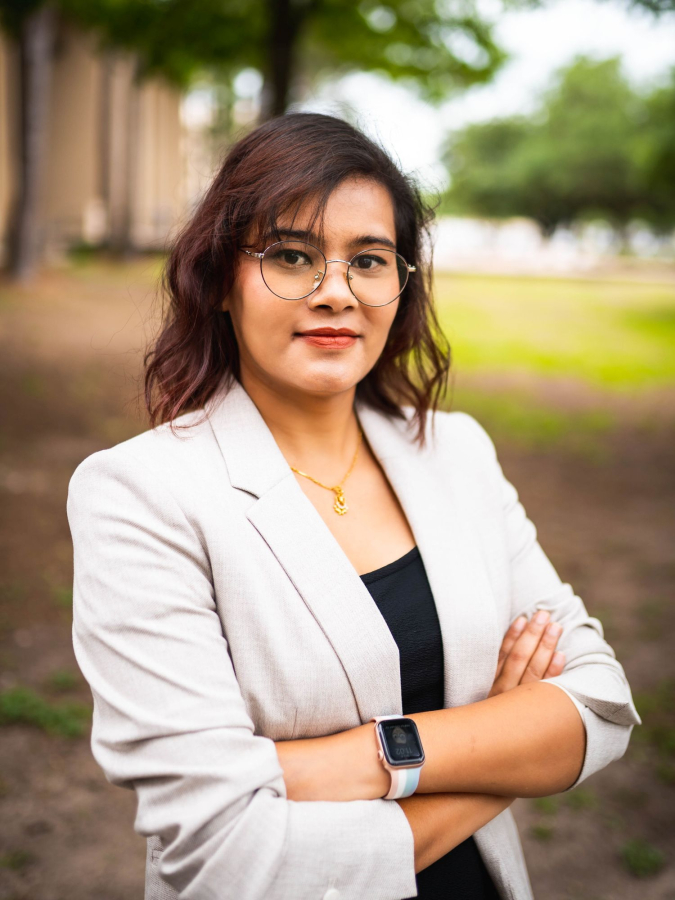A doctoral candidate at the Cullen College of Engineering will be traveling to New Mexico in July to present her research on thermal cooling, after earning a travel award for the 17th U. S. National Congress on Computational Mechanics (USNCCM).
Kripa Adhikari is being advised by Kalyana Babu Nakshatrala, associate professor and associate chair of the Civil and Environmental Engineering Department. This is the second award she has won, after earning the 2022 scholarship from the Houston chapter of the Structural Engineers Association of Texas (SEAoT).
“Dr. Nakshatrala always encourages me to apply for scholarships that are appropriate for me,” she said. “Obviously, I felt great receiving those awards. As an international, female graduate student, awards like this are not only economic support but are also a huge motivation to keep on working hard. I want to offer my gratitude to both the SEAoT Houston committee and USNCCM 17.”
Adhikari described the research she is doing with Nakshatrala as a way to apply animal traits to an environmental issue–thermal cooling, for a variety of modern life situations and devices.
“Along with Dr. Nakshatrala, we were curious about how a Seagull survives in a freezing temperature with a barefoot,” she said. “We are mimicking similar biological phenomena on synthetic materials that can maintain thermal regulation with active cooling. The scope of the application is huge, from microcomputers and batteries to hypersonic aircraft. I will be presenting a sensitivity analysis of design variables that affect our desired material system’s performance.”
Adhikari earned her B.E. in Civil Engineering from Tribhuvan University in Nepal. She worked as a civil engineer for the government of Nepal following her graduation, but she decided to further her education from there.
“After being involved in a national project back in Nepal for two years, it was a perfect time for me to continue my studies,” she said. “In the search process, the quality and prestige of the University of Houston attracted me. The active research and achievements of professors and students were inspirational. Getting an offer from UH was a huge milestone. Since then, it has been a great experience and a source of pride for me.”
Adhikari identified her advisor, her family, and her friends as being important parts of her academic success.
“I am thankful to my advisor, Dr. Nakshatrala, for all the guidance and support, and to all the professors in the Civil and Environmental Engineering Department, from whom I've learned many things. Also, thanks to my family and friends for their continuous belief in me.”
Nakshatrala noted that Adhikari’s success was largely her own doing.
“It gives me great pleasure when my students get recognition,” he said. “Although Kripa is generous in crediting me for her successes, my role is minimal. Kripa's hard work is the principal reason for her success. I am sure she will receive more accolades in her career.”
Adhikari plans to defend and graduate in the fall of 2024.
“Given that my research focuses on optimization of materials using multi-physics simulation and computational heat transfer, whose application is relevant in addressing system's overheating, my ideal career path would be working in research and development at a prestigious technology company,” she said.
